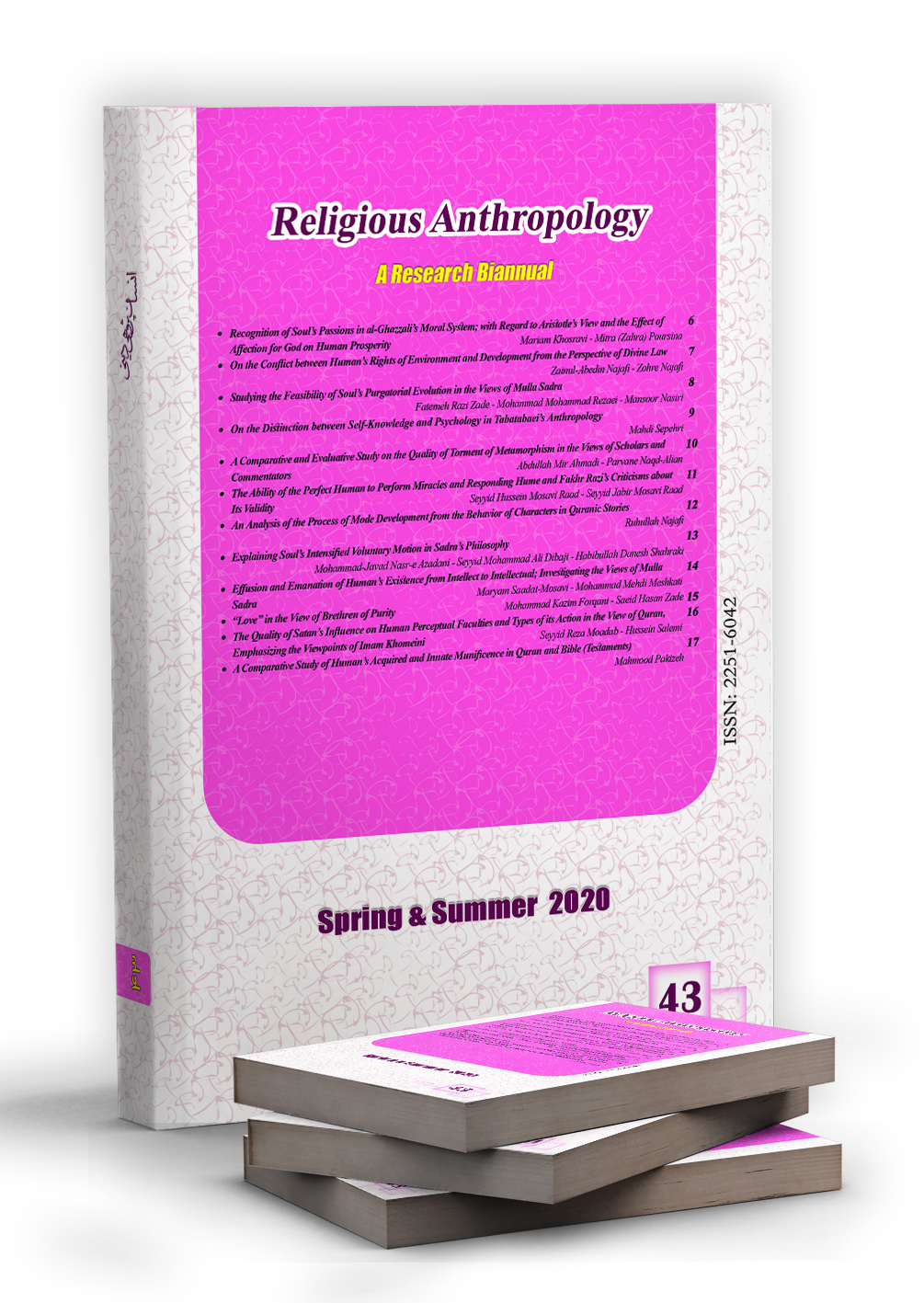On the Distinction between Self-Knowledge and Philosophical Psychology in Tabatabai’s Anthropology and Its Consequence in a New Look toward Health
Document Type : Research Paper
Author
Assistant Professor of Islamic theology and Philosophy, Imam Sadiq University
10.22034/ra.2019.105023.2320
Abstract
Unlike peripatetic and Sadraic philosophers who, despite their differences, investigated the soul-related issues through psychology, Tabatabaei was inclined toward investigating these issues through self-knowledge. Though in the mechanical and mathematical structure of modern medicine showing consideration for human soul and psyche and its faculties in treating illnesses seems meaningless, in non-modern medicine it is a standard and inevitable practice. The current research is intended to delve into self-knowledge and its effects on medicine (while emphasizing health). This study is a fundamental and theoretical research which has adopted a descriptive and analytical methodology. Describing and qualitatively analyzing the content of Tabatabaei’s thoughts and thinking system, the researcher has collected data through library note-taking to describe and analyze the problem. Contemplating and thinking about Quranic verses and tradition, Tabatabaei transits from the distinctions between psychology and self-knowledge to the distinction between subjective knowledge and outer-world knowledge (objective knowledge) which can impose some obligations on the medicine, change it dramatically and lay the groundworks for adopting a new look toward health and illness. In medicine, taking self-knowledge into account, does not mean knowing about self and its characteristics and the way it affects body but it means self-knowledge-based medicine in which the physician leads a different life and develops a different understanding of patient, illness and heath and accordingly treats the illness.
Keywords
